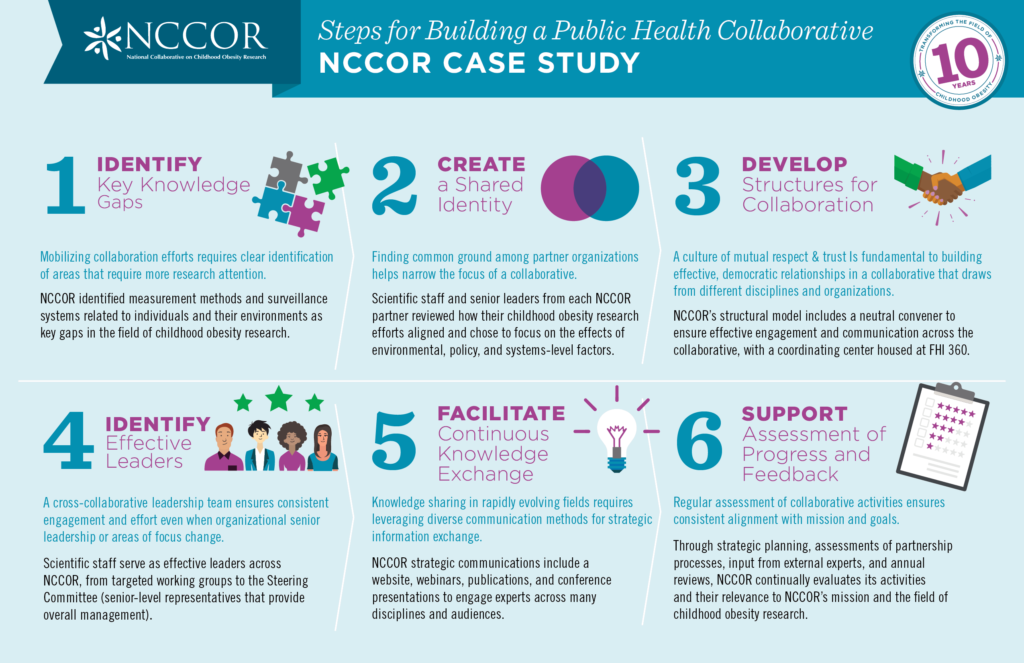In recognition of National Childhood Obesity Awareness Month (NCOAM), NCCOR is highlighting how multidisciplinary partnerships can accelerate progress in reducing childhood obesity.
Earlier this year, NCCOR published two papers in the American Journal of Preventive Medicine describing how the NCCOR partnership has transformed the field of childhood obesity prevention. The first paper, “Developing A Partnership for Change: The National Collaborative on Childhood Obesity Research,” highlights the formation, structure, and operations of NCCOR and discusses benefits of using a collaborative model to address health problems. The companion paper, “A National Collaborative for Building the Field of Childhood Obesity Research,” details several principles for successful partnerships and how NCCOR used these principles to make significant contributions to build the field of research, evaluation, and surveillance for childhood obesity prevention and management.
This month, NCCOR is releasing a new fact sheet that introduces the steps for building a public health collaborative using NCCOR as a case study. This fact sheet is meant to be used not only by childhood obesity researchers and practitioners but anyone working on complex public health problems.
Over the past ten years, NCCOR members have worked with individuals across a wide array of sectors to positively impact the field of childhood obesity research. These multidisciplinary partnerships are highlighted in some of our projects:
- Health, Behavioral Design, and the Built Environment: This workgroup was created to understand an important gap in the knowledge—how do specific aspects of the built environment influence healthy living? NCCOR members invited a multidisciplinary group of experts, including architects, psychologists, physicians, planners, and childhood obesity researchers to derive ways of applying behavioral design principles to foster active living and healthy eating. This work was first developed into a white paper, and this week, a book chapter entitled, Behavioral Design as an Emerging Theory for Dietary Behavior Change, was published in Food and Public Health. Stay tuned for an upcoming NCCOR Connect & Explore on this topic in October!
- Engaging Health Care Providers and Systems in Obesity Prevention: Since 2015, NCCOR members have been partnering with physicians, researchers, health insurance companies, and hospital systems to understand the relationships between communities and clinical settings that address obesity preventions. Currently, the workgroup is planning an online learning collaborative to engage participants in the development of an evaluation framework for community-based, childhood healthy weight programs.
- Increasing Opportunities for Trail Use to Promote Physical Activity and Health Among Underserved Youth: NCCOR members are working together with scientists, public health advisors, nutritionists, transportation planners, community planners, and landscape architects to review the literature on trail use to promote physical activity and health among underserved youth. Two reviews are currently being conducted to identify effective, promising, and emerging interventions and programs for increasing trail use among underserved youth.
Connect with us! How are you working in multidisciplinary partnerships to reduce childhood obesity? Follow us on Twitter and Facebook and let us know! #NCOAM

